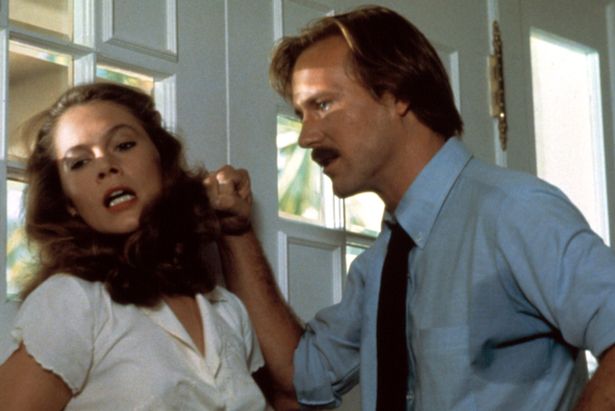Well, maybe not so much beyond. I have to admit that I don't have that much in the way of movies I've watched recently but haven't blogged about. It's also nearing the end of the month on my cell phone data plan, so I was hoping to fire up Watch TCM and use that data watching one of the movies on the app. But wouldn't you know, all the movies that I was thinking of watching that I didn't already record on my DVR during 31 Days of Oscar are movies that I've already blogged about. So I guess it's time for the old standby of pulling out my DW Griffith shorts collection for a post on one of his silent shorts tomorrow.
Over on FXM, it doesn't look like there's anything new showing up, or much that I haven't recently mentioned as being in the rotation. Tomorrow's FXM Retro lineup kicks off with The Song of Bernadette at 3:20 AM, and yes, I need to find a different link for the Four Tops song. The original The French Connection concludes tomorrow's FXM Retro lineup at 1:15 PM. Apparently I've never done a full-length post on that one, probably because I'd have thought of it as a movie everybody's likely to know more about. I have done a post on The French Connection II, as weel as Roy Scheider's unofficial sequel The Seven-Ups.
It's only been a year since I mentioned Two Mules for Sister Sara, which I have on a Clint Eastwood box set. That one shows up on StarzEncore Westerns tomorrow at 7:16 PM. Later in the evening you can watch the comic western Cat Ballou at 11:54 PM, followed by The War Wagon at 1:31 AM. The latter I've got on a Kirk Douglas box set.
No recognizable obituaries to report, although there is the sad news of Bruce Willis' aphasia, which as I understand it is generally an early sign of one form of dementia or another. Unsurprisingly, everybody in Hollywood starts coming out of the woodwork to report that they saw symptoms of erratic behavior for a few years now, and claimed they brought it up with Willis' representatives, but never said anything publicly. As someone whose mother suffered from dementia -- most likely multi-infarct dementia from a series of mini-strokes -- I understand, having seen it up close. (In Mom's case, it didn't help that she was difficult to begin with, and the "erratic" behavior was mostly being even more difficult than normal.)
In happier news, with 31 Days of Oscar being over for another year, it's time for TCM to get back to the regular programming features. For tomorrow morning and afternoon, that means a 90th birthday salute to Debbie Reynolds tomorrow morning and afternoon, including one of her most famous roles in Singin' in the Rain at 4:00 PM.


